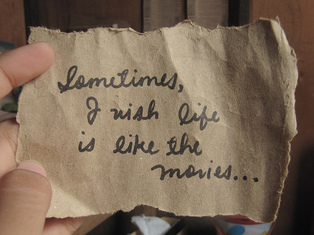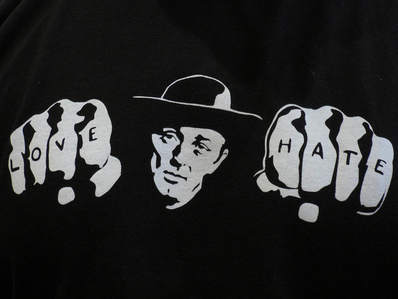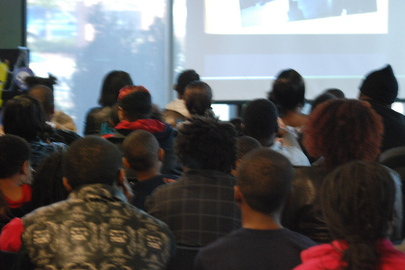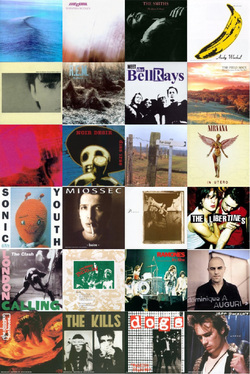
So that's what I did recently. I've been working on a script with a couple of collaborators for about four months, and now that it was finished and we'd read through it for what seemed like the millionth time, we were ready to share it with people that we trusted. We shared it with people we knew in the film industry, friends, roommates, and loved ones. You know, for feedback. What ended up really happening is that I experienced a series of highs and lows and mehs that ended up being more than feedback. It also ended up being a huge learning experience, and that you should always remember when looking for someone's opinions on your baby.
1. Know what you're looking for
What kind of feedback do you want? If you're looking for someone to tell you what a genius you are, give it to your mom. Give it to your significant other and let them fawn over it and reassure you that you are the best thing since sliced bread and your work will forever live on as a beacon of light and hope or brilliance for the rest of the world forevermore.
However, if you're looking for honest feedback, give it to other artists. They can be people who do what you do, or they can just be creative people. Whomever they are, make sure they are people you trust enough to a) tell you the truth and b) tell you in the most diplomatic way possible.
2. Don't Panic
One of the first things we all do when people start attacking our baby is to defend it. We don't want to hear that our baby talks funny, or has a deformity on its head, or is just plain dumb. We want to tell everyone that our baby has beautiful eyes and a lovely soul and that deformity is just part of its charm and makes it that much more endearing. Don't give in to that temptation. Just listen. (Listening is a whole other skill to work on in general, but for now, I'm going to assume you already know how to do that.) Listen to everything a person says about your work. Write it down. Record what they say. Make notes of your own. Take everything in and try to keep you ego quiet. Why? Because defending your work makes you sound…well…defensive. There's a good chance that what could be a productive discussion could devolve into an argument or worse. At best, the person who is trying to help you will simply give up and walk away, resolving to never give you feedback again. Just take it all in, listen, and let them give it to you until they're all out. Then thank them. Thank them for real.
3. Accept that you aren't perfect, and neither is anyone else
There's an old saying that opinions are like…well, you know, because it's an old saying. But yes, everyone has one, and everyone who gives you feedback will have many of them. Everyone comes to your work with a different background and will bring their own baggage with them, which will color their opinions. Remember that. And remember that some people are very good at giving feedback. Sometimes it's precise, and you know exactly what to do. Other times, it's more general, and you have to figure it out. Whatever kind of feedback you get, just keep in mind that not everyone is going to have the same opinion. That's okay. No one is perfect, including you and your work.
4. Use the rule of three
This is where getting multiple opinions from many different sources is key. Since not everyone has the same ones, keep an eye out for the ones that keep coming back. If the same note is given at least three times, you should take it very seriously. It means there is something that many people see, and you need to start seeing it too, and figure out how to fix it. Outside of that, take each piece of feedback on its own. You don't want to be throwing the baby out with the bathwater, so just take a second and consider each point on its own, rather than as a whole. It's less scary that way, and you can consider each point on its own.
5. Breathe
Once you get the feedback, you may start taking each thing and twisting your work to fit into what you think everyone else wants. Before you do that, take a step back. Reconsider your work with this new information, and don't do anything. Don't touch it. Not yet. After the recent feedback we got, I had to talk one of my writing partners down from killing a character on page one. I'll give the same advice to you. Before you go killing hot Brazilians, just breathe and let your emotions subside. When you regain your calm, take another look. Wait a little longer, then think (just think!) about making changes.
6. Sometimes potential goes unrecognized
Remember tip number three. It also means that people also don't know something amazing when they see it. Now, don't go assuming this is the case for you, but just remember. After crying to a friend about my bruised ego, the response was, "Don't take bad feedback too hard. Someone could read Citizen Kane, and then say "That Rosebud thing is stupid." The point is, sometimes potential doesn't look great at first. It's up to you to figure out what you think is worth keeping, and what you can let go of. Be honest with yourself, and move to number seven.
7. Kill your darlings
Be okay with letting things go. Yes, you poured yourself into your work and you love every bit of it. But not everything can be used. You have to let things go. Just take a deep breath, use your delete key, take it out, and move on. Just remember to save the earlier draft in case you change your mind later.
8. Remember: You asked.
You may come out of a feedback session feeling angry, frustrated, hurt, sad, defeated, enthused, inspired, ecstatic, pumped, or euphoric. Whether you ended up high or low, remember this: you asked. You wanted feedback, and someone took the time to give it to you. They were (hopefully) honest, and they want to help you. They don't have ulterior motives, they don't have it in for you, and they could have said no. If you get all emotional and crazy, they won't want to give you feedback anymore, or they won't be honest anymore. Either way, you're screwed. Their feedback comes from the heart, and you should be grateful that they are willing to help you. Thank them.
9. Keep going
No matter how things went, don't give up. Don't give up on this piece, or the next piece, or your goals of making many more pieces. Half of being successful is never giving up, especially when things get tough. If being creative were easy, everyone would do it. But they don't. You do. So keep doing it. Work on editing your work, then move on to the next things and the next and the next. And keep getting feedback. Trust me: it will make your work better, will help you give better feedback (because you'll have to return the favor), and will make you a better person.
























 RSS Feed
RSS Feed
